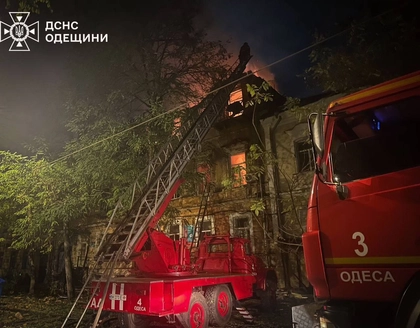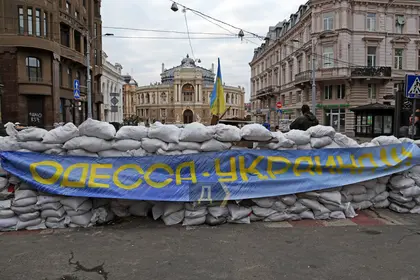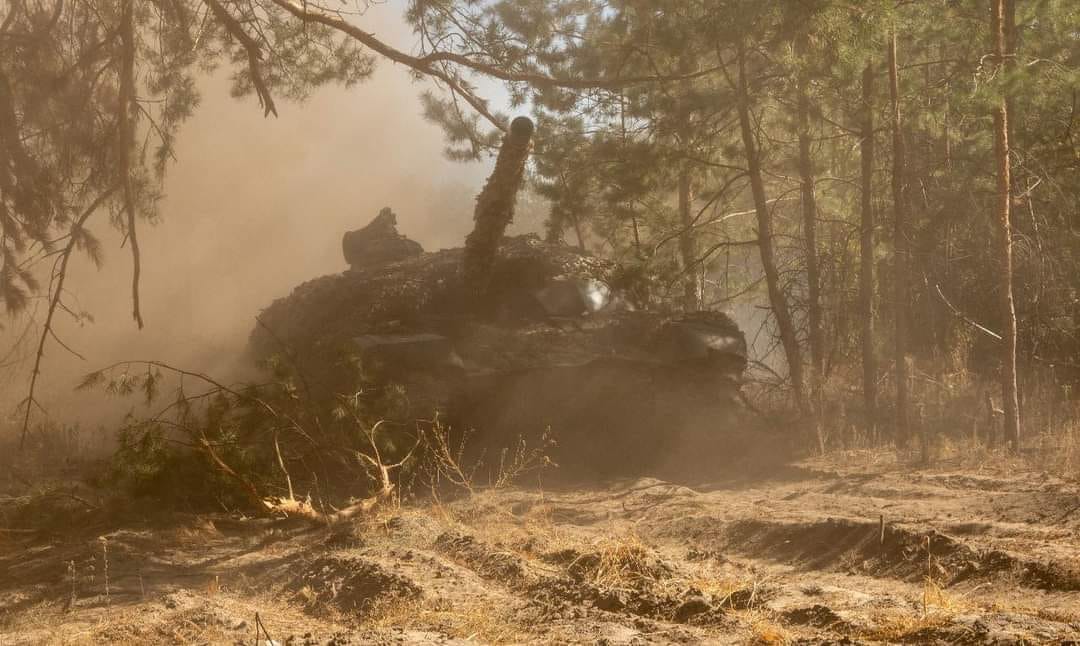When do we stop learning things? I don’t mean acquiring a smattering of Spanish, or successfully rewiring a bathroom light fixture, but big, foundational, true things. Ideas and ideals that while esoteric and hard to articulate, are as vital to humans as air and water.
I’ve been on this planet for a long time and am presumably seasoned enough to have absorbed some wisdom and perspective, maybe even a basic doctrine for living a good life. That’s what I thought anyway. But having spent half of the past year in Ukraine revealed to me some rather prominent gaps in my philosophy, and, odd as it may sound, I have a war to thank for that.
JOIN US ON TELEGRAM
Follow our coverage of the war on the @Kyivpost_official.
As a lifelong humanitarian worker, I’ve been in many places that will kill you – wars and genocides fill my CV – and sometimes well-meaning friends inquire if perhaps I’ve picked up some PTSD along the way. It’s possible, I suppose, but if so I think it’s a fair price to have paid for what renowned combat journalist Sebastian Junger describes as “life multiplied by some number that no one has ever heard of.”
By that I don’t think he simply means that danger makes food taste better and friendships feel deeper. His point is that at its most profound, conflict strips away the quotidian nonsense and leaves us with what’s real and honest. Sometimes that’s appallingly ugly, like a woman’s pale leg protruding from a pile of bricks. But if we’re lucky, like panning for gold, war can take away the silt and sand, leaving only the remaining brilliant flecks to admire.

One Dead, Thousands Without Heating After Russian Strike on Odesa
The cloud of concepts we produce can make it hard to see what’s good, great or just goofy.
When I arrived in Odesa last year, the beautiful old city on the Black Sea graciously, or more accurately unconsciously welcomed me. Walking past its art nouveau buildings, looking up at the cupolas and spires of its churches, and talking to its people in cafe and bars late into the night, I started to relearn the power of old ideas and emotions.
In my country, we generate so many notions that it’s often nigh on impossible to separate the wheat from the chaff, the significant from the silly. Online debates over TikTok and Taiwan via for our attention, with the former often commanding the most attention. God bless America for its fertile and sometimes febrile hive mind, but the cloud of concepts we produce can make it hard to see what’s good, great or just goofy.
Ukrainians, while far from impervious to the temptations of Western pop culture, seem to understand that the things that will keep them and their national identity alive involve the old time-tested values. In one village I visited, the community center featured posters on its walls with quotes from the Ukrainian constitution as well as certificates for having won first prize in the local “Best Borsch” competition. That blend of democratic idealism and small-town pride is happily commonplace in Ukraine.
I saw time and again that patriotism doesn’t have to involve strutting and bellowing and chest-thumping. It can be as quiet and dignified as a crowd kneeling silently by the side of the road, heads bowed, as a funeral cortege passes by carrying another young body to the cemetery. Nor is patriotism something to be scoffed at as retrograde and primitive, as is so often the case in my own country. True patriotism is distinct from jingoism, and loving my nation does not mean I must loath yours. Except Russia of course, I can hear my Ukrainian friends say. That’s a topic for another time.
The power of endurance is constantly on display in Ukraine. People are of course tired, sometimes even exhausted by two years of war, but one rarely hears any true whinging.
I was reminded that courage doesn’t mean posting a shallow cliche on Facebook about bringing down the patriarchy. Real bravery means going to work each morning after a sleepless night spent tossing and turning as Russian drones and missiles target your town. Or getting into a creaking old car, driving down dirt roads that may or may not be mined, and delivering long underwear and wool socks to troops sitting in a mud-filled trench.
The power of endurance is constantly on display in Ukraine. People are of course tired, sometimes even exhausted by two years of war, and most of them suck on vape pens and cigarettes to keep their stress at bay, but one rarely hears any true whinging. They complain of course, as all peoples do, about politics, the weather, and the price of eggs, but they understand that compared to those of the frontline troops and the amputees, their troubles are insignificant and consequently their gripes often come with a side order of black humor. As the great stoic philosopher Seneca put it: It is more civilized to make fun of life than to bewail it.
So let me thank Ukrainians, for these lessons and many others, big and small. For demonstrating in a hundred ways how to be calm in the face of fire, how to be resolute when the world appears to have lost interest, and how to maintain one’s humanity when madness seems to be all powerful. One thing, though, that I haven’t fully embraced is their odd notion that pickled vegetables will get you through the hard times. But give me time.
The views expressed in this opinion article are the author’s and not necessarily those of Kyiv Post.
You can also highlight the text and press Ctrl + Enter






